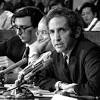Live updates: Latest news on a government shutdown and how it ...

WASHINGTON−The country is four days away from a federal government shutdown that could impact millions of Americans, as infighting among House Republicans has so far prevented Congress from passing spending bills.
House Speaker Kevin McCarthy is looking for progress this week as the lower chamber tries to move a series of appropriations bills that ultimately determine the budget for the federal government. A deal must be reached this week to avoid an Oct. 1 shutdown.
Meanwhile, the Senate is trying to move a continuing resolution, a stopgap spending bill that would temporarily fund federal agencies for another 45 days and avoid a shutdown.
But it would come with a potential risk to McCarthy, who has hardline conservatives in the House calling for his removal if he works with Democrats or passes a continuing resolution.
Here's what it means for you.
What's a government shutdown?A government shutdown means all federal agencies and services officials don’t deem “essential” have to stop their work and close their doors.
Some of those essential services include the U.S. Postal Service delivering mail and people receiving Medicare and Social Security benefits. Those will continue whether or not the government shuts down.
But so-called “non-essential” work can still have significant impacts for federal employees and Americans across the country. Thousands of federal workers would be furloughed, government food assistance benefits could be delayed and some food safety inspections could also be put on pause.
– Marina Pitofsky
What are the odds of a government shutdown?Hold off on placing any bets. If lawmakers in the House and Senate can reach a compromise by Sept. 30 on a dozen bills that would fund the government, a shutdown is off the table. Congress could also pass a temporary measure to keep the government funded, known as a continuing resolution.
But both of those options are unlikely as of Tuesday morning. Lawmakers haven’t agreed on one of the 12 bills they would need to pass, and a group of conservative House Republicans have insisted on hardline spending cuts that have no chance of passing in the Senate, which is currently controlled by Democrats.
Last week, House Democrats and moderate Republicans appeared to start working on a fallback plan, but it’s not clear the rare bipartisan push would receive enough support to dodge a shutdown.
– Marina Pitofsky
What happens when the government shuts down?In a government shutdown, all federal agencies that are not "essential" — think U.S. Postal Service, Medicare and Social Security — would stop work.
This means thousands of federal employees would be on furlough and Americans would go without government benefits such as food and housing support.
Air travel will be generally spared: Air traffic controllers and TSA agents will continue working, though without pay. Travelers may also contend with longer wait times and flight delays.
− Savannah Kuchar
What was the longest government shutdown in U.S. history?The longest government shutdown lasted for 35 days from late 2018 to early 2019 under the Trump administration. It went into effect after the House and Senate failed to reach a compromise on a short-term funding plan to keep the government running through early next year.
The critical issue was that Senate Democrats opposed President Donald Trump’s $5.7 billion request for building a wall on the southern border.
Before that, the longest government shutdown lasted from Dec. 5, 1995, to Jan. 6, 1996, when Republican House Speaker Newt Gingrich and Democratic President Bill Clinton faced off over taxes.
- Sudiksha Kochi and John Fritze
Is Social Security impacted by a government shutdown?Social Security recipients will continue to receive checks in the event of a government shutdown and Medicare benefits will not be interrupted.
However, employees in the Social Security Administration are likely to be furloughed and government food assistance benefits could see delay.
A few services that are not directly related to Social Security payment benefits and direct-service operations would be temporarily suspended.
− Marina Pitofsky and Sudiksha Kochi
Moody's says a government shutdown could hurt U.S. credit ratingThe country’s credit rating could face additional pressure if the government shuts down next week, according to a new report from Moody’s Investors Service.
While a short-lived shutdown would not impact government debt service payments and isn’t expected to disrupt the economy, Moody's said it would “underscore the weakness” of U.S. institutional and governance strength compared to countries with similar credit ratings.
“In particular, it would demonstrate the significant constraints that intensifying political polarization put on fiscal policymaking at a time of declining fiscal strength,” Moody's report reads.
If the potential shutdown does drag on, it would "likely be disruptive both to the US economy and financial markets," although Moody's notes that any government shutdown is more likely to be brief and concentrated in areas with a large government presence, like Washington, D.C.
− Bailey Schulz
Would a government shutdown impact travel?The deepest impact would not be on your flight or cruise.
Funding to agencies like the Federal Aviation Administration, Transportation Security Administration and Customs and Border Protection would be on hold. However, the agents who you typically interact with at airports and seaports, and the controllers who oversee your flights are considered essential and will be working without pay during the shutdown.
Impacts on those agencies have more to do with things like hiring and training. All the crucial safety functions like inspections and air traffic control continue.
Consular operations in the U.S. and internationally will also continue normally “as long as there are sufficient fees” collected to support them, according to the most recent guidance from the State Department. “This includes passports, visas, and assisting U.S. citizens abroad.”
There could be economic repercussions, though. A government shutdown is estimated to cost the country's travel economy as much as $140 million per day, according to an analysis for the U.S. Travel Association.
− Zach Wichter and Nathan Diller
What does a government shutdown mean for Medicare?Medicare benefits will continue, though there could be a delay in some payments.
The benefits are considered among essential services, along with U.S. mail delivery, air travel, Amtrak, Social Security payments and more.
-Candy Woodall
What agencies are affected by a government shutdown?All agencies could be affected by a government shutdown.
From the Department of Homeland Security to the Department of Agriculture, each agency will have a plan to stop its nonessential functions, and hundreds of thousands of federal employees will be furloughed.
Agencies also rely on each other during a shutdown. For example, the State Department’s U.S. Passport Agency will remain open during a government shutdown, so you should be able to get a passport if you need one. But if passport services are offered in a building near you that’s run by an agency that has shut down, you could have to look elsewhere.
– Marina Pitofsky
Does a government shutdown affect federal retirees?A government shutdown would have major consequences for hundreds of thousands of federal employees, but federal retirees will receive payments if lawmakers fail to keep the government open.
These retirement payments are one of several functions that won’t stop during a government shutdown, alongside Social Security and Medicare benefits.
Employees ranging from air traffic controllers to emergency personnel in national parks will also stay on the job, whether or not the government shuts down.
– Marina Pitofsky
What will not be impacted by a government shutdown?President Joe Biden and members of Congress will continue to work and get paid, but their staff members who aren’t considered “essential” will be furloughed. The Supreme Court will also stay open, but federal courts could have to scale back functionality.
But what does essential mean? Think employees such as air traffic controllers and law enforcement officers. U.S. embassies and consulates would likely stay open, and you should still be able to get a passport and visa.
If you’re planning a trip to Washington D.C. or a National Park, monuments and other areas will likely stay open. However, maintenance of those areas may be delayed or canceled altogether.
And as the holidays approach, a government shutdown also likely won't impact NORAD's beloved Santa Tracker.
– Marina Pitofsky


 United States
United States Argentina
Argentina  Australia
Australia  Austria
Austria  Brazil
Brazil  Canada
Canada  Chile
Chile  Czechia
Czechia  France
France  Germany
Germany  Greece
Greece  Italy
Italy  Mexico
Mexico  New Zealand
New Zealand  Nigeria
Nigeria  Norway
Norway  Poland
Poland  Portugal
Portugal  Sweden
Sweden  Switzerland
Switzerland  United Kingdom
United Kingdom 































